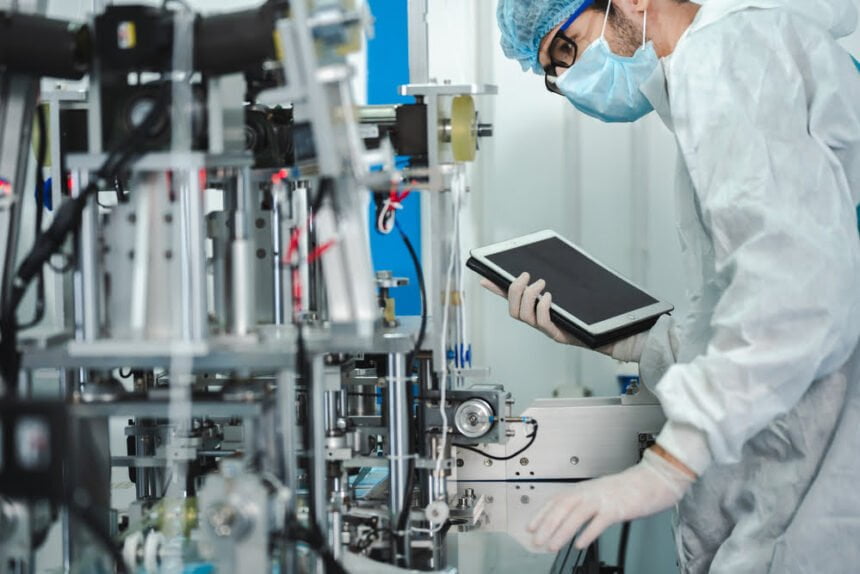There has been an increased demand for healthcare services due to the SARS-2 Coronavirus pandemic. Therefore, many entrepreneurs feel this is an excellent opportunity to create a company that sells pharmaceutical products, and medical devices. The market for medical devices in the United States alone is worth over $156 billion.
We have shared some steps to help you create a medical device business. Most industry professionals and regulators will classify pharmaceuticals as medical devices, even if they seem different from a functional perspective. Therefore, the following tips apply to indie pharmaceutical startups as well.
WORK WITH THE RIGHT SUPPLIERS
You are going to have to work with trusted suppliers. You might want to find somebody that completed Cfpie’s GMP facility certification program. They will be more likely to provide quality products that you are looking for.
LEGAL STRUCTURE
It is an excellent idea to incorporate all of your pharmaceutical, medical devices, and sanitary products into the same company with an LLC or corporate legal structure. You will have limited liability for any debts or lawsuits with third parties. You will also separate your assets from your corporate capital.
We only recommend an Individual Limited Liability Company (EIRL). However, if you will carry out the project with two or more partners, you should consider a Closed Joint Stock Company (SAC). Here are some things to keep in mind:
(a) Regarding the corporate purpose, it is essential to correctly define the activities you will carry out according to the legal framework. For example, if you are going to commercialize these products, you must declare yourself as a Drugstore. A Drugstore is a pharmaceutical establishment dedicated to the importation, commercialization, storage and distribution of pharmaceutical products, medical devices and sanitary products.
(b) The capital stock will depend on the investment that you need to start the business. A good stock research platform can assist you in securing your financial well-being. It is possible to subscribe 100% as initial capital stock or through other financing modalities such as mutual agreements between shareholders and the company and joint venture agreements.
TAX CONSIDERATIONS
You will need to make sure that your accounting is handled correctly. You should hire professional CPAs to manage your company’s accounting and taxation process if you are running a medical device company.
You should also choose an accounting system and a computerized voucher issuing system. There are many accounting and tax issues to consider. They can be even more complicated for medical device manufacturers. It would help if you worked with a professional accounting team to better understand the complexities involved when handling your taxes.
You should also use a management system (software) POS for purchases, sales and inventories, an electronic invoicing system and a system for sending laboratory reports via the internet. Issues related to import perception, deduction and withholding will be essential as well. These issues are highly scrutinized when you are running a medical device company.
There used to be a 2.3% excise tax on medical device sales. However, this was repealed back in 2019, which is good news for medical device startups.
LABOR ISSUES
The owners of the company (shareholders, partners and owners depending on the type of legal entity) may be part of the company’s payroll. This is their decision. On the other hand, partners and other collaborators such as salesmen, storekeepers, administrative personnel, transportation personnel, and others will be classified as formal W-2 employees. Or you can apply for the Special Labor Regime that has a regime for micro-companies and another one for small companies with fewer labor costs for your project. For this, MEP will help you register your company in the Registry of Micro and Small Enterprises (REMYPE) of MINTRA.
If you are going to have salespeople for your medical device business, they should be categorized as full-time employees under your company’s payroll. The salesperson will receive a basic salary plus commissions, which are usually variable. That is to say, one month, they may earn $9,000 and the following month, they might earn $6,000. When trying to calculate a salesperson’s benefits, the law requires you to use a calculation methodology based on a half-yearly forecast. So first, averages of the remunerations of each semester are obtained, and with that result, the computable payment is calculated. And based on this amount, the benefits are paid to the worker.
MUNICIPAL PROCEDURES
If you are going to have a local storefront for your products, you must know the steps for obtaining an operating license. You are going to need to make sure that you use the proper documents to apply for a license.
The documents are going to be different in every city or town. Make sure that you speak with the relevant contact person at the city hall if you plan to operate a local store for the products you sell.

